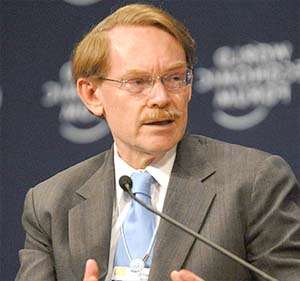
THE CAPACITY of countries to effectively move goods to connect manufacturers and consumers with international markets is improving around the world, but much more progress is needed to encourage economic growth, a new World Bank Group survey has revealed.
Germany is the top performer among the 155 economies ranked in the Logistics Performance Indicators (LPI), which were included in the report, “Connecting to Compete 2010: Trade Logistics in the Global Economy.”
The study is based on the most comprehensive world survey of international freight forwarders and express carriers.
Economic competitiveness is relentlessly driving countries to strengthen performance.
Improving trade logistics is a smart way to deliver efficiency, lower costs and promote economic growth,” World Bank Group President, Robert B. Zoellick has said.
He is visiting Berlin from January 13 -15 to discuss global development and economic issues.
Streamlining the connections among markets, manufacturers, farmers and consumers would offer tremendous growth and investment opportunities.
According to the LPI, high-income economies dominated the logistics rankings, with most of them occupying important places in global and regional supply chains.
The 10 lowest performing countries are all from the lower-income groups.
Although the study shows a substantial logistics gap between rich and most developing countries, it finds positive trends in some areas essential to logistics performance and trade.
Some of them include the modernization of customs, use of information technology (IT) and development of private logistics services.
“Following our first survey in 2007, many developing countries have improved their capacities to connect to international markets, which is a key ingredient for competitiveness and economic growth “If developing countries want to come out of the crisis in a stronger and more competitive position; they need to invest in better trade logistics,” said Otaviano Canuto, World Bank Vice President for Poverty Reduction and Economic Management.
“Countries with better logistics performance can grow faster to become more competitive and increase their level of investments, Bernard Hoekman, Trade Department Director at World Bank has indicated.
“Our research shows that increasing logistics performance in low-income countries to the middle-income average could boost trade by around 15 per cent and benefit all firms and consumers through lower prices and better quality services,” he added.
Many countries performed better than what their income level would suggest.
The 10 most significant over-performers include China (27), India (47), Uganda (66), Vietnam (53), Thailand (35), the Philippines (44), and South Africa (28).
Likewise, the countries with significant improvement in performance implemented comprehensive logistics and trade facilitation reforms.
In terms of how developing countries are doing per region, South Africa (28) was the top performer from Africa; China (27) from East Asia; Poland (30) from Central and Eastern Europe; Brazil (41) from Latin America; Lebanon (33) from the Middle East; and India (47) from South Asia.
According to the study, logistics performance is significantly influenced by the quality of public sector institutions and the effective coordination of border clearance processes.
In this area, customs performed better than many other agencies, pointing to the need for border management reforms.
In low performing countries, half of the containers were physically inspected.
Other areas that needed improvement include transport policies, competition in trade-related services such as trucking, freight forwarding and railways.
For many low-income countries, the most binding constraints are often in logistics services and international transit systems.
These countries performed better on many indicators, but improving trade infrastructure is reported to be a priority for middle-income countries.
The World Bank Group has a number of projects designed to improve trade logistics in developing countries.
The $250 million East Africa Trade and Transport Facilitation project improved the corridor infrastructure and upgraded the main border crossing between Uganda and Kenya at Malaba, reducing border crossing from three days to three hours.
In Tunisia, a $250 million project is improving competitiveness by reducing trade costs and streamlining border clearance procedures.
In Afghanistan, the bank is funding a $31.2 million project to modernize and computerize four major border crossings to increase customs revenues from $50 million to over $399 million.
In addition, the World Bank is working with IBM, Microsoft and the Global Express Association as part of a public-private partnership to develop pilot projects in developing countries that apply innovative IT solutions to streamline border procedures.
By Samuel Boadi




 We’ll protect state wealth from opaque deals – Prof Jane Naana
We’ll protect state wealth from opaque deals – Prof Jane Naana
 Mauritania president says running for second term in June polls
Mauritania president says running for second term in June polls
 I won't ever say I was a mere driver’s mate' — Prof. Opoku-Agyemang
I won't ever say I was a mere driver’s mate' — Prof. Opoku-Agyemang
 2024 polls: 'EC struggling to defend credibility'— Prof. Opoku-Agyemang
2024 polls: 'EC struggling to defend credibility'— Prof. Opoku-Agyemang
 Akufo-Addo gov't's 'greed, unbridled arrogance, unrestrained impunity, sheer dis...
Akufo-Addo gov't's 'greed, unbridled arrogance, unrestrained impunity, sheer dis...
 Election 2024: Ghana needs an urgent reset, a leadership that is inspiring – Ma...
Election 2024: Ghana needs an urgent reset, a leadership that is inspiring – Ma...
 Partner NDC to rollout a future of limitless prospects – Prof Jane Naana Opoku-A...
Partner NDC to rollout a future of limitless prospects – Prof Jane Naana Opoku-A...
 NPP will remain in gov’t till Jesus comes — Diana Asamoah
NPP will remain in gov’t till Jesus comes — Diana Asamoah
 Sunyani Technical University demands apology from former SRC president over sex-...
Sunyani Technical University demands apology from former SRC president over sex-...
 'Dumsor' was resolved by Mahama but ‘incompetent' Akufo-Addo has destroyed the g...
'Dumsor' was resolved by Mahama but ‘incompetent' Akufo-Addo has destroyed the g...
